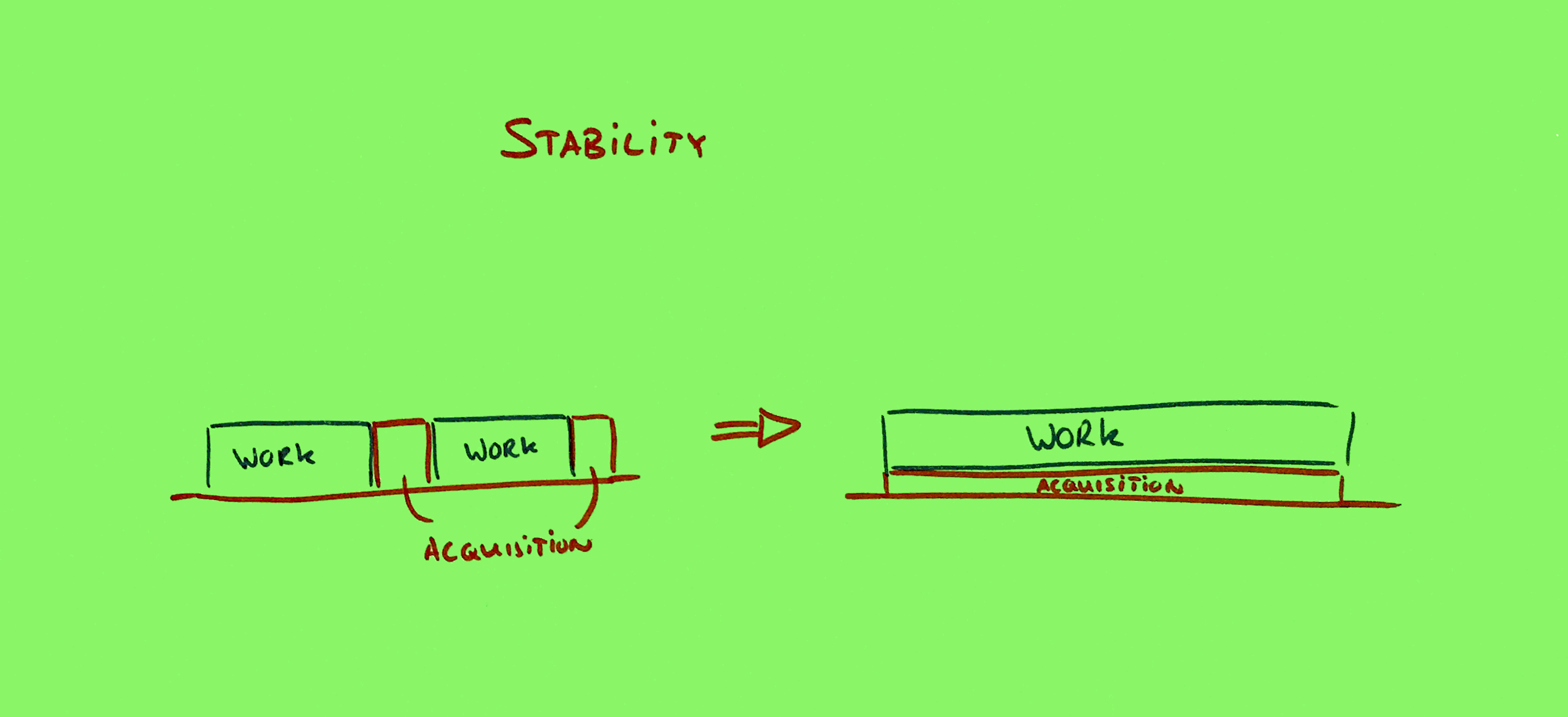Know your work. Translating success to your main focus. (Metrics part 2)
In the last post, I focused on the importance of creating a metric for success. Sounds impressive. And a bit nerdy. But it's nothing more than a translation of your goals to tangible and measurable numbers. For example, a yearly revenue goal to weekly sales targets or weekly billable hours.
This success metric allows you to track whether or not your work in having the desired effect.
Even more powerful is being able to track whether or not you've done what you need to do to reach that effect. To be able to track the necessary work that you put in.
The hard thing is that you need to figure out what it is that enables you to reach the goals you set out.
But, it allows you to:
- revise and improve your entrepreneurial theory,
- focus on what you can control and hold yourself accountable, and
- gain stability
Entrepreneurial Theory
Whether or not you can generate the desired result is often dependent on a lot of factors. The sandbox we play in as entrepreneurs is complex. Which means that our control is limited.
As an entrepreneur, the leadership that's required is to see what is necessary to blaze a path through that complex sandbox. Or at least trust that by trying you'll eventually get there. (Side note: this is similar to the leadership you offer a client when proposing a solution for their problems.)
This leadership results in a crude 'theory' of what you need to do in order to create the desired effect. You simplify the world and dial down all the available options to the few key actions. "If I do A, B and C, that will lead to X".
Or at least, you have to believe that. Or view it as an experiment and set that as the going theory for this quarter.
Your work then becomes doing A, B and C. Because that's what gets you the results. So doing your work becomes you main focus.
"If I send a proposal for a project every week, enough of them will hire me." "If I approach 2 shops every week to sell my product, I will grow my store at the desired pace." "If I keep publishing blogs every week, one of them will turn out to be great. And if I write enough, there's a book in there."
It brings great focus in your work. This is also liberating. A lot becomes redundant and clearly distraction to the main work. It means you don't have to run after every available option anymore. Your work is doing those 3 things.
When you create metrics for the work you put in as well as the result of that work, you can start to spot the patterns. With experience, this allows you to refine your theory. You'll gain a better understanding what the main levers are to pull on and this allows you to design your work smarter.
Focus on what you can control
The number of registrations, your success rate of proposals, the quality of your work, or even the speed of your run for that matter; it will all vary over time. Often due to factors beyond your control. Some people take longer to decide to buy than others. Sometimes you have it, sometimes you don't.
Now, sometimes there is a natural and cyclical element to your work. Like seasons in a year (or sometimes literally because of the seasons). And, this is ok.
But that way it gets really tricky to judge a specific week if you only look at the output. One week can be good because you had a large number of registrations/sales/inbound calls. Your shop's busy. But another can be bad because nobody hired you. Your shop's a ghost town. Even though nothing has really changed.
You won't be able to predict every individual sale, registration or viral hit. And trying to control the effect can be stressful and frustrating.
But luckily you won't have to. A saner way is to look at the bigger picture. Sometimes it works. Sometimes it doesn't. But you know that over the long run it trends towards success.
Plus, the more you try, the more often it will work. Without an offer, no sale. Without a shot, no goal.
So you can best focus on what you can control. Playing your part the best you can. To focus on the work needed to reach the results.
If you've done everything you could and it turns out it didn't work, it's time to refine the theory. But this input metric allows you to hold yourself accountable and on track.
Do something consistently - even if its quality is bad or if you don't feel like it - and eventually it will be successful. This is true for writing, running and sending out proposals for work. So keep showing up.
Stability and Sanity
Stop me if this sounds familiar. Your project ends and you are stressed because you need to find new clients. But of course, you quickly start running in overdrive and manage to find new clients. Great!
But, now you are super busy because so many clients hired you. Too busy in fact to keep doing acquisition. Especially now that the urgency for it is nearly zero. So, when this batch of projects ends, you again are without a client. And the cycle repeats.
Now of course, for (y)our stress levels, it would be better to have a more stable workload. And thus, we shouldn't do sales 2 times a year in overdrive-mode. But do a little bit of sales consistently every week (or every day even).
So, working a week in overdrive might give you a lot of billable hours. But part of the cost of doing so is that you push the work to acquire new clients forward. You are also mortgaging your future!
And, a week where sales numbers go through the roof seems great. But of course, that that week is a great week because of the cumulative work of the weeks before.
In other words, don't just focus on what's important for today, but also on the work that's important for tomorrow. This is classic Eisenhower Box.
Thus, if you want to have a metric to tell you whether or not you've done well in a week, you need to translate your goals into what brings you successes now and in the future.
Your input metric then states: "For a good week, I need to do A, B and C. My theory is that if I do that, it will create the output I want."
Before you go
When you liked this, I would love it if you would like or share it. It really helps new people find my work.
Plus, if you liked this or when you feel you need more of this, maybe my upcoming 2-day Strategy Masterclass where I'll help you develop a strategy to go from dream to plan is exactly what you need!



